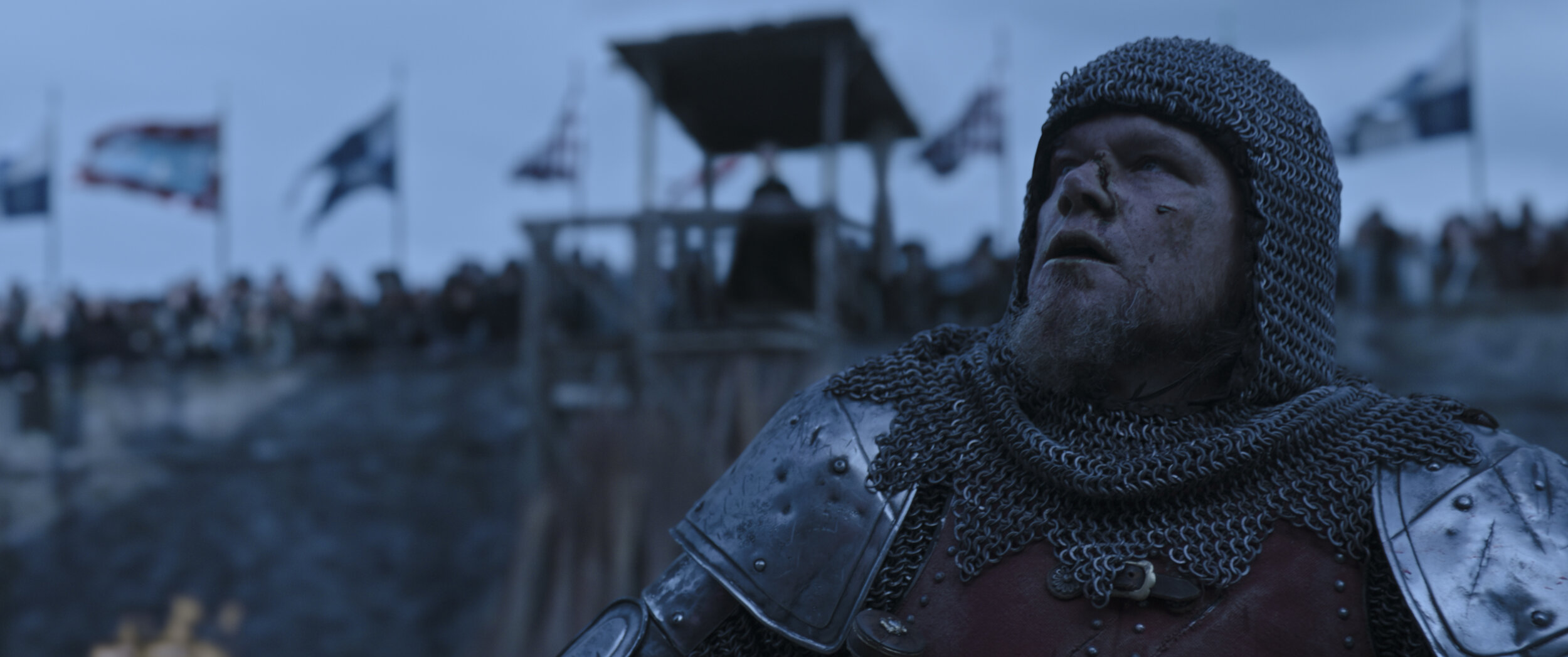He said, he said, she said
A ‘Rashomon’ spin on 14th century rape law that’s way better than it really has any right to be, starring wigs and a final title event totally worth the price of admission.
The Last Duel
Director: Ridley Scott • Writers: Nicole Holofcener, Matt Damon, Ben Affleck
Starring: Matt Damon, Adam Driver, Jodie Comer, Ben Affleck, Alex Lawther, Tallulah Haddo, Marton Csokas, Harriet Walter
USA/UK • 2hrs 33mins
Opens Hong Kong Oct 14 • IIB
Grade: B+
After director Ridley Scott made something of an ass of himself in declaring he can’t put “Mohammed So-and-So” in his movies because of the economics and logistics of modern filmmaking (or something along those lines) you’d be within your rights to steer clear of a film about rape by him. I mean. C’mon. Dude is about 80. If anyone were to argue “Well, look at what she was wearing!” it could be him. But, shock of shocks, The Last Duel is one of Scott’s best films of the last decade or so, with the exception of The Martian, with plenty of stinging observations about systemic misogyny and our ongoing propensity to question women when they say they’ve been sexually assaulted (or harassed, or discriminated against, or mansplained to…).
The Last Duel was written by Oscar-winning buddies Matt Damon and Ben Affleck, and in a clever bit of marketing and/or sensitivity initiatives they hired Nicole Holofcener (Can You Ever Forgive Me? and women’s prison drama Orange is the New Black) to co-write. Damon and Affleck wrote the main male parts, Holofcener wrote the main female part. Guess what? The character, perceptions and reactions of the rape victim, played by Jodie Comer, ring true. Who’d have guessed?
So it’s 14th century France, and squires and BFFs Jean de Carrouges (Damon) and Jacques Le Gris (Adam Driver) return from war and work for King Charles VI’s regional overlord, Count Pierre d'Alençon (Affleck). Jacques becomes really chummy with Pierre because he’s good with numbers and whips his ledger into shape, and when the Count wants his taxes from the cash-strapped Jean, he buys him some time. Jean marries Marguerite de Thibouville (Comer, Killing Eve) to secure her healthy dowry and pay his taxes. What follows is a fair amount of backstabbing, stolen wealth, insults and banishment. The important part is that one day when Jean is out of town, Jacques visits Marguerite at their estate. She insists he raped her, he says otherwise, and the two men settle the score that somehow becomes about them in a duel. It is one of the movies’ all time great, bleak, bloody throw downs, gorgeously shot by regular Scott cinematographer Dariusz Wolski.
By telling the same story three times, from three different points of view, The Last Duel is efficient in making its points: Perception is a powerful thing, and in 700 years it is still a man’s perception that is valued more highly. By aligning with Marguerite’s version of events, the film doesn’t necessarily condemn that draconian thinking, it more points at it and laughs hysterically while trying to say, “Idiots!” Scott doesn’t get flashy in The Last Duel; there are no vestiges of Blade Runner. It’s Directing 101 that doesn’t waste time or frames gussying up a story that doesn’t need it. By avoiding modernity, Scott courts modernity, dancing around the entitlement and obliviousness of the men involved. Yes, there should be more of Marguerite’s POV, but she’s doesn’t need straightening out. Jacques, Jean, and Pierre need to be exposed, not her.
Scott gets plenty of support from his cast, though ironically Comer has the least to do. That said, she gets the last word by relaying her version of events after Jacques and Jean – who wasn’t even there! – do. Damon deploys his standard frustrated working man vibe, and does a terrifyingly strong job of highlighting Jean’s pettiness and just how big the chip on his shoulder is. Driver is always a treat, but his physicality does a fair amount of the heavy lifting here. The fact that Marguerite dared to stand up to him and his word is even braver given the visual relationship between Driver and Comer. But as he’s done quite a bit lately, it’s Affleck who steals the film. Someone give this guy and Robert Pattinson’s Louis, The Dauphin from The King their own movie. He makes Pierre an effete snob, who has zero shits to give about any of this, and just wants it to go away so he can get back to his orgies. He brings the perfect degree of levity to a deadly serious subject, but a kind of levity that proves the sexist point. The crime perpetrated on Marguerite is just not worth the effort it takes to even listen to her, never mind prosecute it. For all its stony medieval walls and chainmail, The Last Duel says less about 14th century rape law than it does about 21st century rape culture. It’s enough to make you want to brandish a broadsword. DEK




